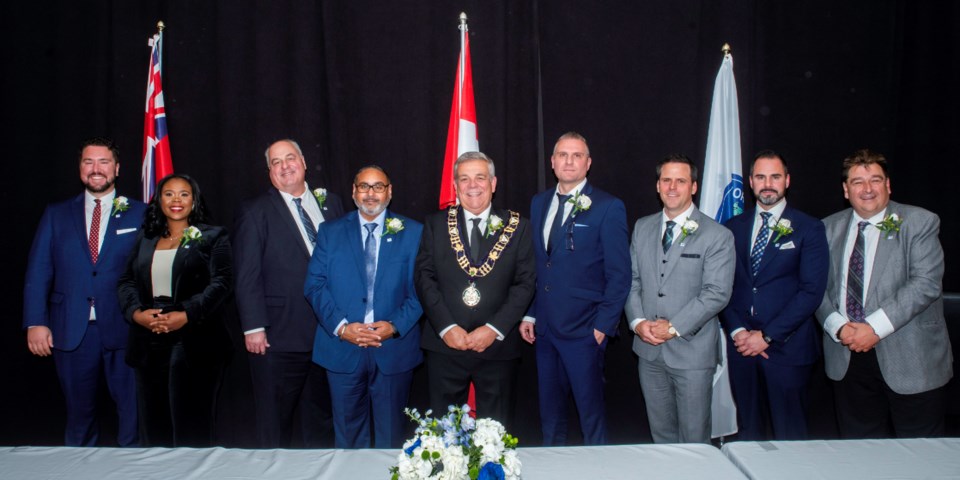I had the good fortune of being a newspaper editor at the advent of social media. It was eye-opening in so many ways. In real-time, I could see what stories truly resonated with readers and how their reactions online correlated to page views.
What was most interesting to me was the difference between what was popular online and what we thought was popular in print. Typically, we could gauge the reach of our print stories via the number of letters to the editor we’d get. By this logic, people were enamoured with local council coverage.
But when we started tracking our hits online, council stories barely were a blip on the radar. Now, it was all about human interest, or, in one specific case, bee interest. If it were still online, I’m certain a piece I helped put together on the beekeeper with “a million dead bees” would still be drawing hits to the Hanover Post.
While I’m not privy to the Village Media analytics, I’ll take a stab and suggest police blotter articles are our biggest traffic generator. And as someone who has covered municipal councils for the better part of 15 years, this always bums me out. Honestly, we’d have a stronger democracy if more people cared about what their elected officials are doing than who was caught speeding on Canal Road.
However, I’m not so foolish to consider everything at the council table worthy of page views. Nor would I be so bold as to argue there’s even mild interest in everything being discussed. In fact, truth be told, most people will find some of it to be dreadfully boring.
Like procedural bylaws.
Bradford West Gwillimbury council appears poised to pass an update to its procedural bylaw at the next council meeting, following appearances on the agendas of the previous two meetings.
Proper procedure is essential to a ensure council runs smoothly and it’s a great exercise for a new council to make sure it’s conducting its business in the way it wants to. But it’s remarkably Inside Baseball at the same time, the kind of things that will be sought out by those who have an interest.
Perhaps more interesting than what the new procedural bylaw contains is what councillors chose to discuss during their debate on it during the committee-of-the-whole portion of the Feb. 21 council meeting.
For the most part, councillors seem to be in favour of keeping Open Forum as part of their meetings – they just want to make the process more efficient. Under the new bylaw, the amount of time allowed for Open Forum would be cut by 10 minutes, from 30 to 20, meaning four people per meeting could speak for the maximum five minutes allowed, versus the current six.
At first blush, this seems like the move of a council looking to stifle public participation, which didn’t sit well with Coun. Cheraldean Duhaney and Coun. Peter Dykie. But that notion is quickly kiboshed when I recall most Open Forums I’ve covered in the past. Especially in the face of a contentious issue, Open Forum can devolve into a tedious cavalcade of speakers who bring nothing different to the matter than what the first speaker argued.
Nor can councillors engage with those speakers in any meaningful conversation on the matter in Open Forum. As Mayor James Leduc suggested, the changes in the procedural bylaw aren’t meant to shut down Open Forum, but merely tighten it up. For residents and councillors to have worthwhile, back-and-forth conversations, the new CAN meetings are the perfect venue, he suggested, and aren’t confined to what can be an otherwise packed agenda on a typical Tuesday night.
Where Leduc was correct with the revisions to Open Forum, he stumbled in his opposition to allowing virtual access to closed session meetings.
He was the lone dissenter to an amendment to allow councillors to attend closed session meetings virtually, preferring that only in-person closed meetings be allowed. For the mayor, it was a matter of security as much as anything else: the town is unable to control who else would be in the room with a councillor participating in a closed session virtually and therefore didn’t have control over that information being shared. At least if everyone was in the same, secure room, the likeliness of someone learning information said in camera is significantly lessened, he argued.
But the past nearly three years of council meetings cuts down that argument, as do countless examples not only in the world of municipal, provincial and federal politics but also in the world of business. Highly secretive information is being discussed and vital decisions are being made every day over programs such as Zoom or Microsoft Teams. The business of the municipality should be no different, when necessary.
And that necessity doesn’t only have to be when a council member is under the weather and not keen to spread germs around the table. Innisfil council also met this week and they went fully virtual for the first time since the fall, to keep councillors and most staff members from travelling during the snowstorm.
The world didn’t stop when we were forced to go virtual due to the COVID-19 pandemic. If anything, it kept the world going. To not keep it as a tool at their disposal for any meeting, closed or otherwise, would have been a step backwards for an otherwise forward-thinking council.
Council will look to ratify the new bylaw at its March 6 meeting. Click here to sign up for Open Forum if there’s anything on the agenda you want to speak to.



